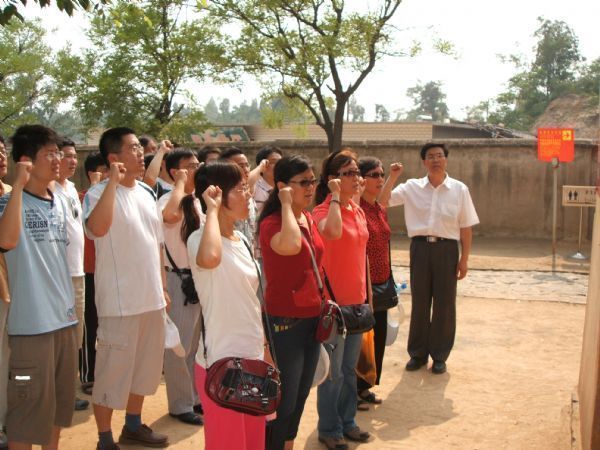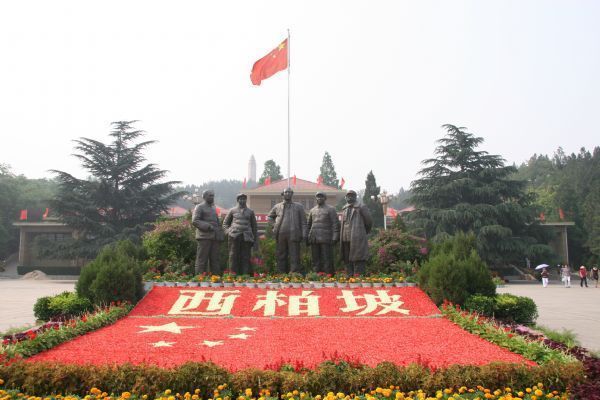
In order to celebrate the 86th birthday of our great Communist Party, more than 80 party members in our institute went to visit Xibaipo under the leadership of the Deputy Party Secretary Wang Xiaomin on Jun.8 to 9, 2007. Xibaipo is a famous "red tourism" scenic site and a revered patriotic education site.
Xibaipo, a name echoing the glory of China's revolutionary history, is an ordinary 100-household village located in Pingshan county, Hebei Province. In May 1948, under the leadership of Comrade Mao Tse-tung, the Party's Central Committee and the headquarters of the Chinese People's Liberation Army moved to this village. This made it the last rural command center prior to the decisive battles between the Communist Party and the Kuomintang. Xibaipo's unique contribution to the revolution has thus bestowed upon it a name that shines in the history books of the Chinese revolution, setting up a historical monument with eternal glory.
Approaching the noon, we arrived at the destination. After a short rest, we went to visit the Former Site of the Central Committee of the CPC. Here we saw the Mao Tse-tung's residence, Liu Shao-chi's residence, Comrade Chou En-lai's former residence and so on. We greatly admired the hard work and plain living spirit of the old generation. And also we had a look at the Command Cabin. It is a small room, including three important sections of the army. Though it is small, in it did our great leaders guide the whole army to gain successes one by one in the years of war. Following the guide, we next came to the original site where the 2nd plenary meeting of the 7th Central Committee of CPC was convened. Here we had a review of the Party Oath.

At last we went to visit the Memorial Museum. The Xibaipo Memorial Museum covers a total area of 13,400 sq m with a built-up area of 3,344 sq m. The museum was opened to the public on May 26, 1978. It is built along a hillside and divided into two levels, structurally characterized by courtyards and surrounding corridors. The exhibitions inside use the most advanced audio and video technologies and demonstrate the historical significance and far-reaching repercussions of Xibaipo.

When we drove back, many people warmly discussed the feelings of a day's visit. This visit evoked our determination to study from the old generation and inspired us to work harder and harder to create a bright future for our institute.


